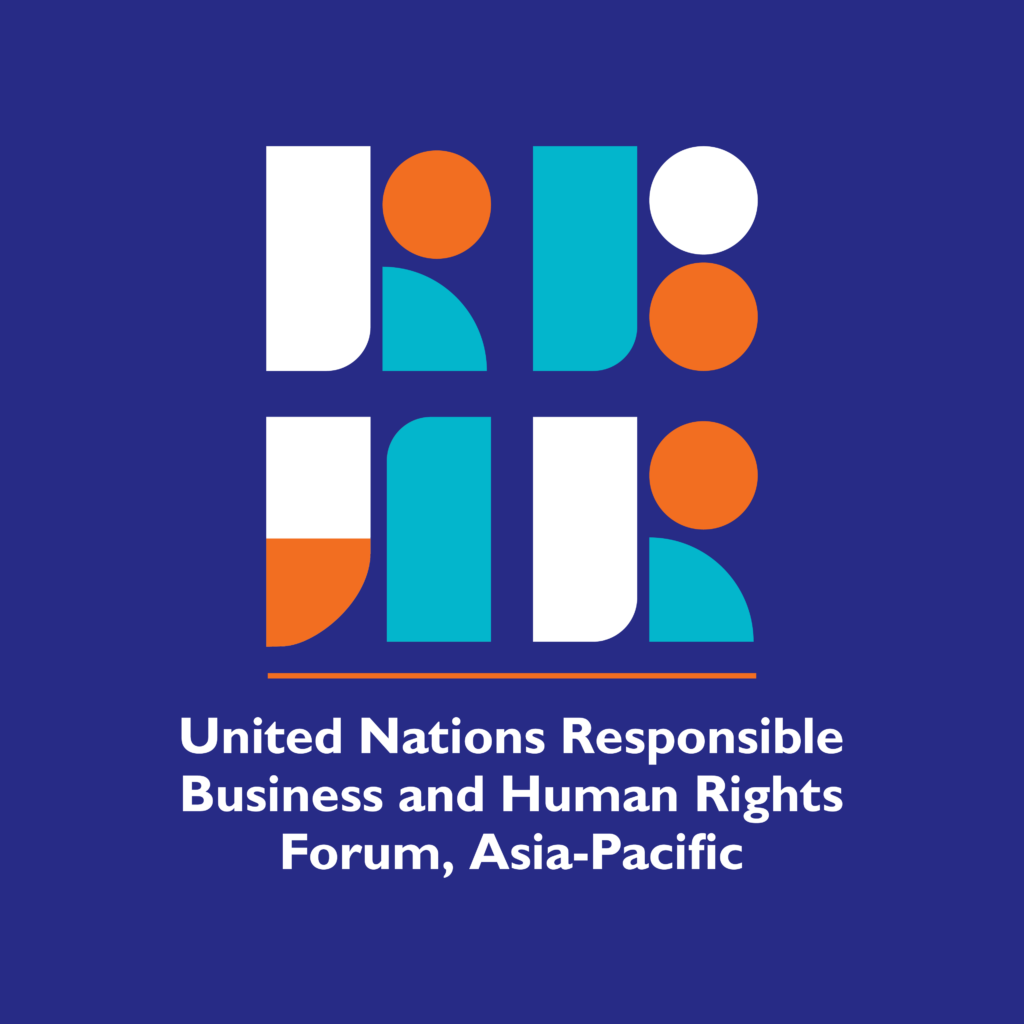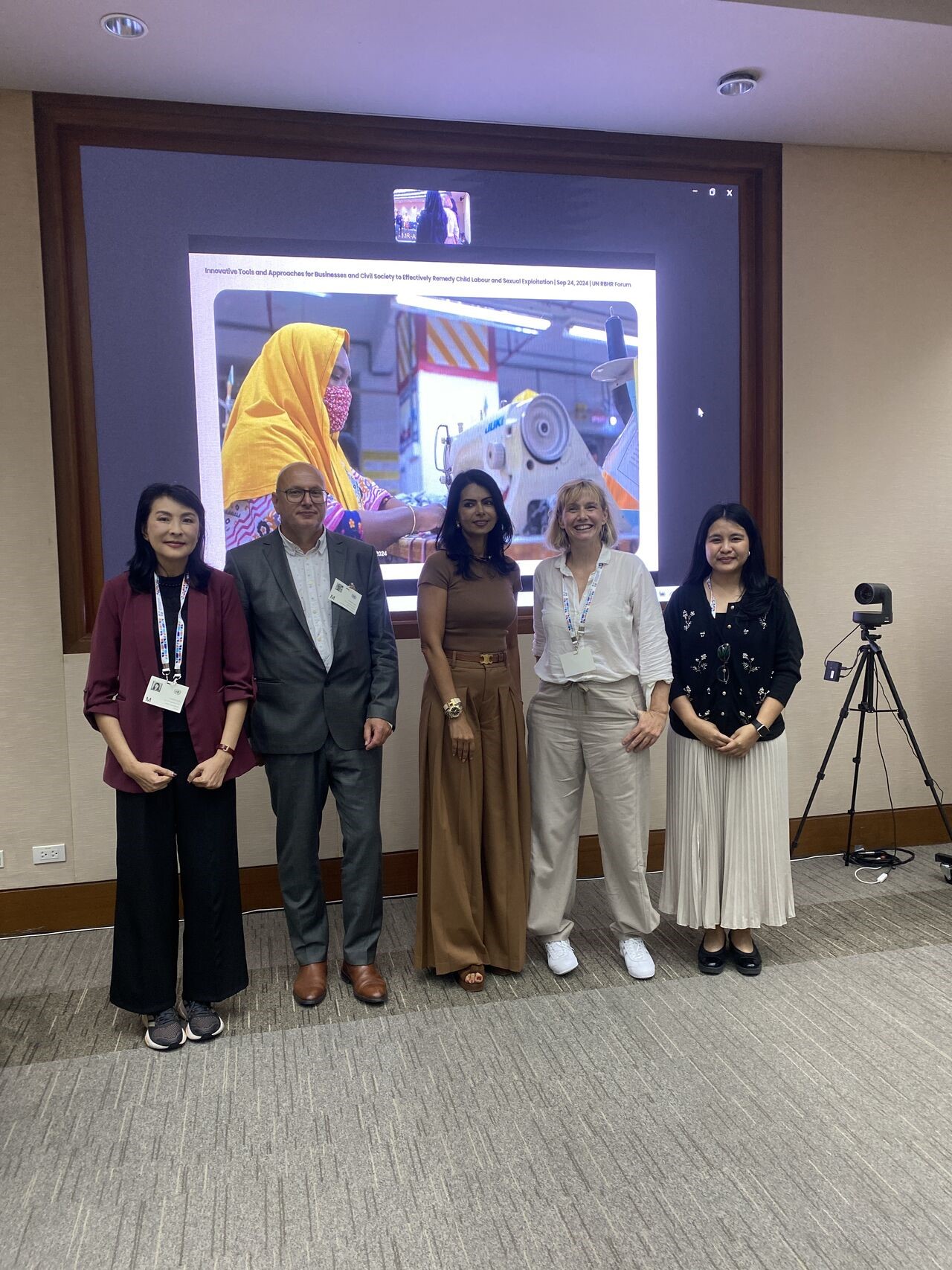
MY Voice participated in the panel session, “Innovative Tools and Approaches for Businesses and Civil Society to Effectively Remedy Child Labour and Sexual Exploitation”, at the 2024 UN Responsible Business and Human Rights Forum in Bangkok this September.
Organising partners of the panel session:
- The Centre for Child Rights and Business (representing the MY Voice project in collaboration with Social Accountability International)
- Thailand Hotline Foundation (representing the Down to Zero Alliance in collaboration with ECPAT International)
- The Global March Against Child Labour
- The Remedy Project
The session highlighted the challenges and opportunities in addressing child labour remediation across business supply chains, while navigating changing due diligence requirements, such as the EU CSDDD and others, and the local legal and social environment. Speakers emphasised the importance of collaboration between businesses, government, communities, and civil society to restore the rights of exploited children.
Riri Siti O. Malikah, Director of Services – Asia, The Centre for Child Rights and Business, shared MY Voice’s experience in establishing the Hab Aksi Hak Kanak-Kanak in Sabah’s palm oil sector. She highlighted the significance of genuine engagement and participation by local stakeholders from the initial design phase of the Action Hub. This includes overcoming challenges in reaching workers in remote areas with limited communication and social support networks. She also emphasised the importance of identifying and engaging key local stakeholders, particularly teachers in child learning centres, who provide critical support to children. By engaging and training these teachers to identify child labour and equipping them to act as case managers, the initiative aims to strengthen the existing support systems that are deeply familiar with the local context.
One significant challenge identified during the panel discussion was the disconnect between businesses and informal workers, who are often excluded from formal compliance systems. This exclusion allows child labour and other violations to persist, particularly in agriculture and small-scale industries. Informal workers’ lack of access to grievance mechanisms further exacerbates their vulnerability. Panelists called for stakeholders and solution providers to devote attention to this underlooked issue.
The discussion also emphasised that providing remedies involves more than compliance. It means reinstating children’s rights, as highlighted by session moderator Ines Kaempfer, CEO of the Centre for Child Rights and Business.
Key Insights from the Panel Session:
- Sector-wide collaboration is essential for tackling child labour and sexual exploitation, as these are systemic issues deeply embedded in the lower tiers of supply chains.
- Engaging small and medium enterprises (SMEs) is crucial, as they often struggle with navigating due diligence processes, which larger corporations manage more easily.
- Community involvement is vital for identifying and addressing cases of exploitation. A bottom-up approach is necessary to effectively address the root causes of child labour.
- Holistic remedies for child exploitation must extend beyond financial compensation, addressing broader needs like education, medical support, and rehabilitation.
- Grievance mechanisms should be child-friendly and developed with input from affected communities. This helps prevent fear of stigma or mistrust from deterring children from reporting violations.
Recommendations for Change:
The session called for a shift from a top-down, compliance-focused approach to a community-driven model in which businesses understand their duty to protect children’s rights. This involves listening to rightsholders—particularly children—and designing more inclusive solutions. Key recommendations include:
- Remedies for children must be accompanied by support for decent work for adults, ensuring that exploitation does not become a coping strategy for families.
- Proactive prevention measures are needed to change social attitudes and prevent harm before it occurs.
- Impact assessments must have actionable outcomes, with resources allocated not only for identifying risks but also for addressing them.

